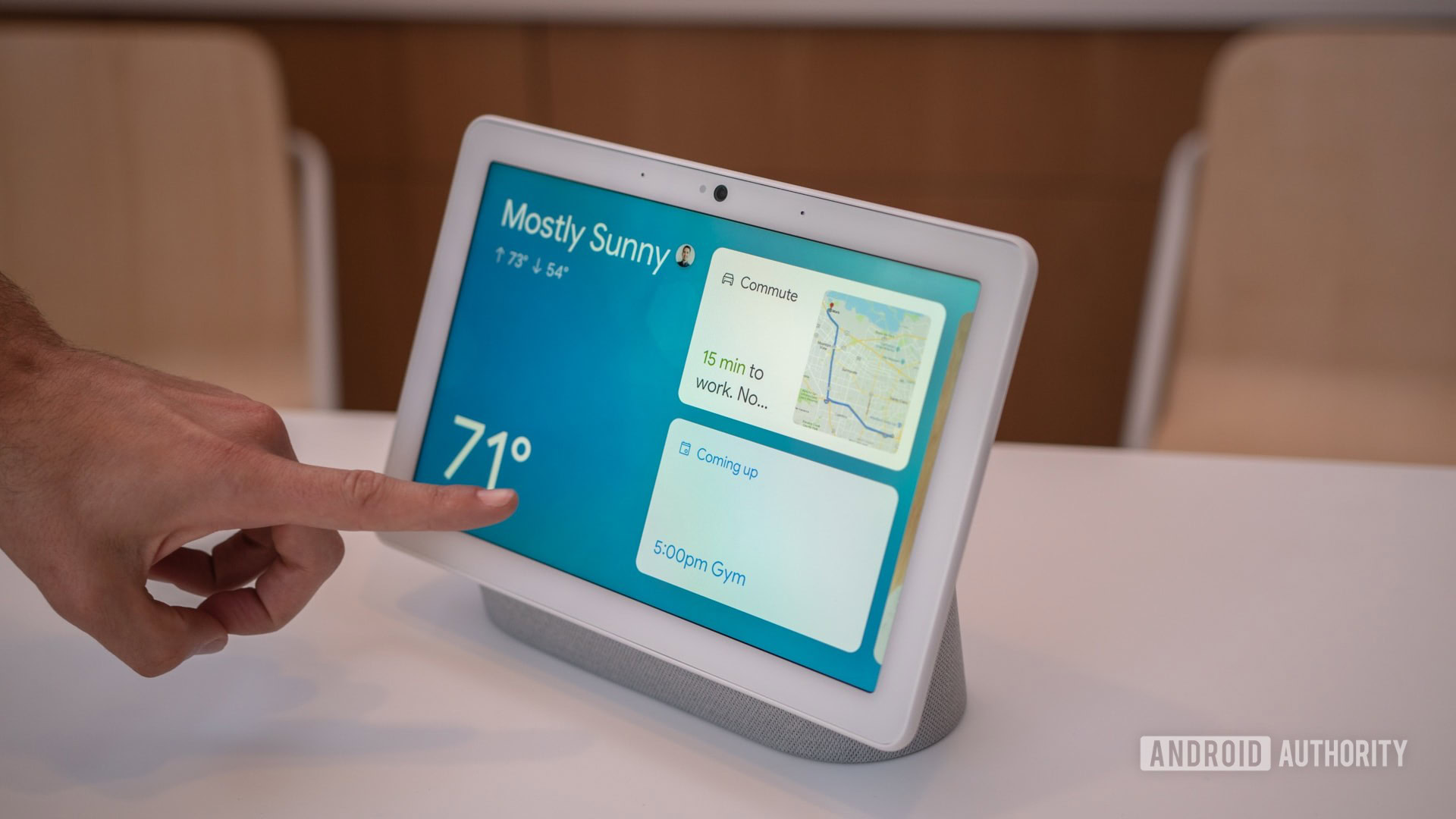Affiliate links on Android Authority may earn us a commission. Learn more.
You might not need "hey Google" to use Assistant on Smart Displays

- Google has been testing a feature that would invoke Assistant on Smart Displays without voice.
- It might use ultrasound to activate the AI helper when you walk into the room.
- There’s no indication this will become an official feature.
Tired of talking to your Smart Display just to have Assistant perform a command? There might come a time when you don’t have to. Known tipster Jan Boromeusz claims to have discovered (via Android Police) an experimental feature that may use ultrasound to activate Google Assistant on a Smart Display without saying “hey Google.”
The test appears to use the ultrasound sensing on a Smart Display like the Nest Hub Max, normally meant to adapt the interface depending on distance, to invoke Google Assistant when you approach. You would only have to walk into the room to get the AI helper’s attention. That could be helpful if you want to turn on the lights without announcing your presence first. Stay still and Assistant goes away.
Don’t count on this reaching the public. Boromeusz’s Smart Display seems to be using internal-use-only firmware meant for Google employees — the feature is tucked into a “Dogfood Features” menu (referring to dogfooding, or using your own product). You likely can’t find this on your own hardware, and there are no guarantees it will become public soon, if at all.
A Google spokesperson told Android Authority, “We’re constantly experimenting with ways to help users more seamlessly get things done. We have no further details to share at this time.”
As-is, voice-free Google Assistant activation might not get very far. It would be all too easy for someone to accidentally issue a command. However, the experiment could serve as a peek at how you interact with smart homes in the future. Instead of barking wake words or tapping on screens, you might only have to walk in a certain direction or make a gesture.